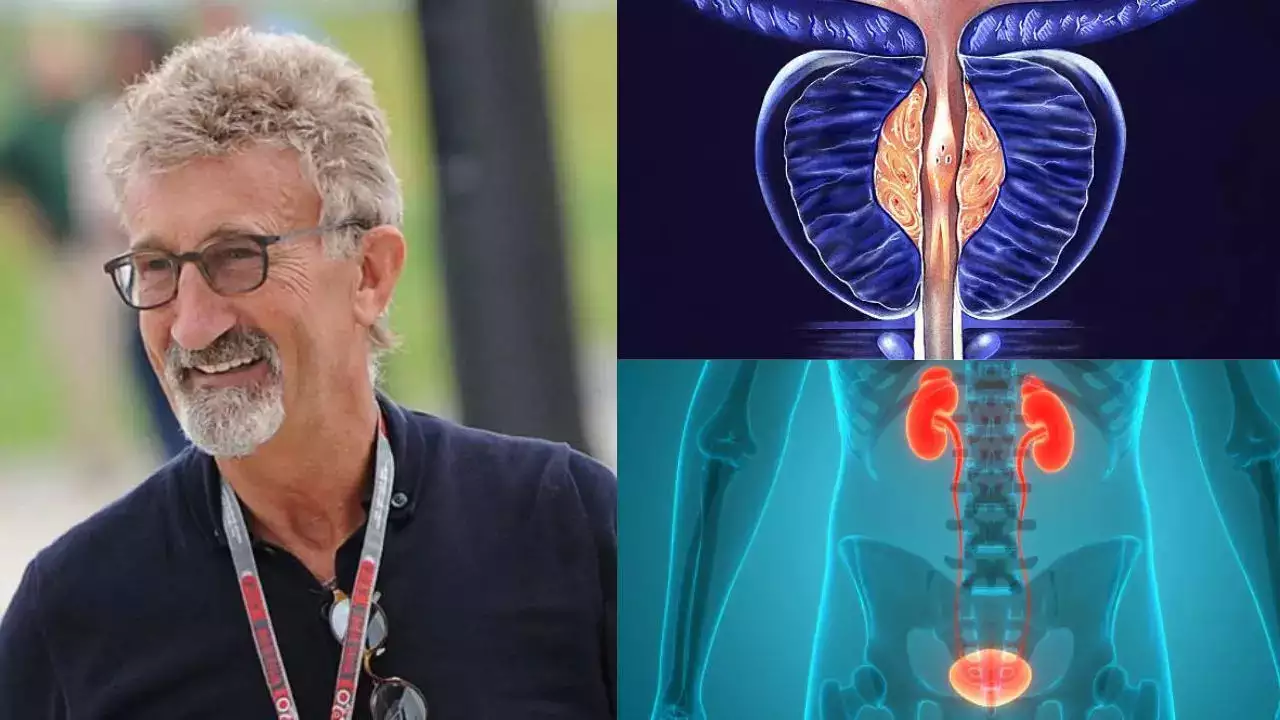
The 76-year-old said he went through some dark days as the cancer spread to different parts of his body
Formula One legend Eddie Jordan has revealed his battle with aggressive prostate and bladder cancer, which he said has spread pretty much since his diagnosis this spring.
The 76-year-old, in a podcast interview, said he went through some "dark days" as the cancer spread to different parts of his body. He advised people to go out and get tested and spoke about the importance of looking after one's body. “It spread into the spine and the pelvis, so it was quite aggressive,” Eddie said.
"But this is a little message for all the anchors and everybody listening to this: don't wait or put it off. Go and get tested, because in life you've got chances and there is so much medical advice out there and so many things that you can do to extend your lifetime. Go and do it,” he added.
Jordan, who raced Grand Prix in F1 until 20 and achieved its best-ever result in 1998, said he is taking treatment for the cancer.
According to experts, prostate cancer and bladder cancer are both common urologic cancers and are mostly diagnosed in later stages, when the patient goes under palliative care. Prostate cancer develops in the prostate, a small walnut-shaped gland located below the bladder and in front of the rectum in men. This tiny gland secretes fluid that mixes with semen, keeping sperm healthy for conception and pregnancy.
If you are diagnosed with prostate cancer, it is most likely an adenocarcinoma, which starts in the cells of glands, like your prostate, that secrete fluid. Rarely, prostate cancer forms from other types of cells.
Signs and symptoms of prostate cancer
Doctors say early-stage prostate cancer rarely causes symptoms, however, a few of them are:
- Frequent, sometimes urgent, need to pee, especially at night
- Weak urine flow or flow that starts and stops
- Pain or burning when you pee
- Loss of bladder control
- Loss of bowel control
- Painful ejaculation
- Blood in semen
- Pain in your lower back, hip, or chest
How does bladder cancer spread?
Bladder cancer occurs when cells in the bladder grow out of control, forming a tumour that can damage the bladder and other organs. The most common symptom is blood in the urine, which is usually painless. Other symptoms include:
Pain when you pee
This is a burning or stinging sensation that you may feel when you start to pee or after you pee. Men may have pain in their penises before or after peeing.
Needing to pee a lot
Frequent urination means you are peeing many times during a 24-hour period
Having trouble peeing
The flow of your pee may start and stop or the flow may not be as strong as usual.
Persistent bladder infections
Bladder infections and bladder cancer symptoms have common symptoms. Contact your healthcare provider if you have a bladder infection that does not go away after treatment with antibiotics.
Get Latest News Live on Times Now along with Breaking News and Top Headlines from Health and around the world.